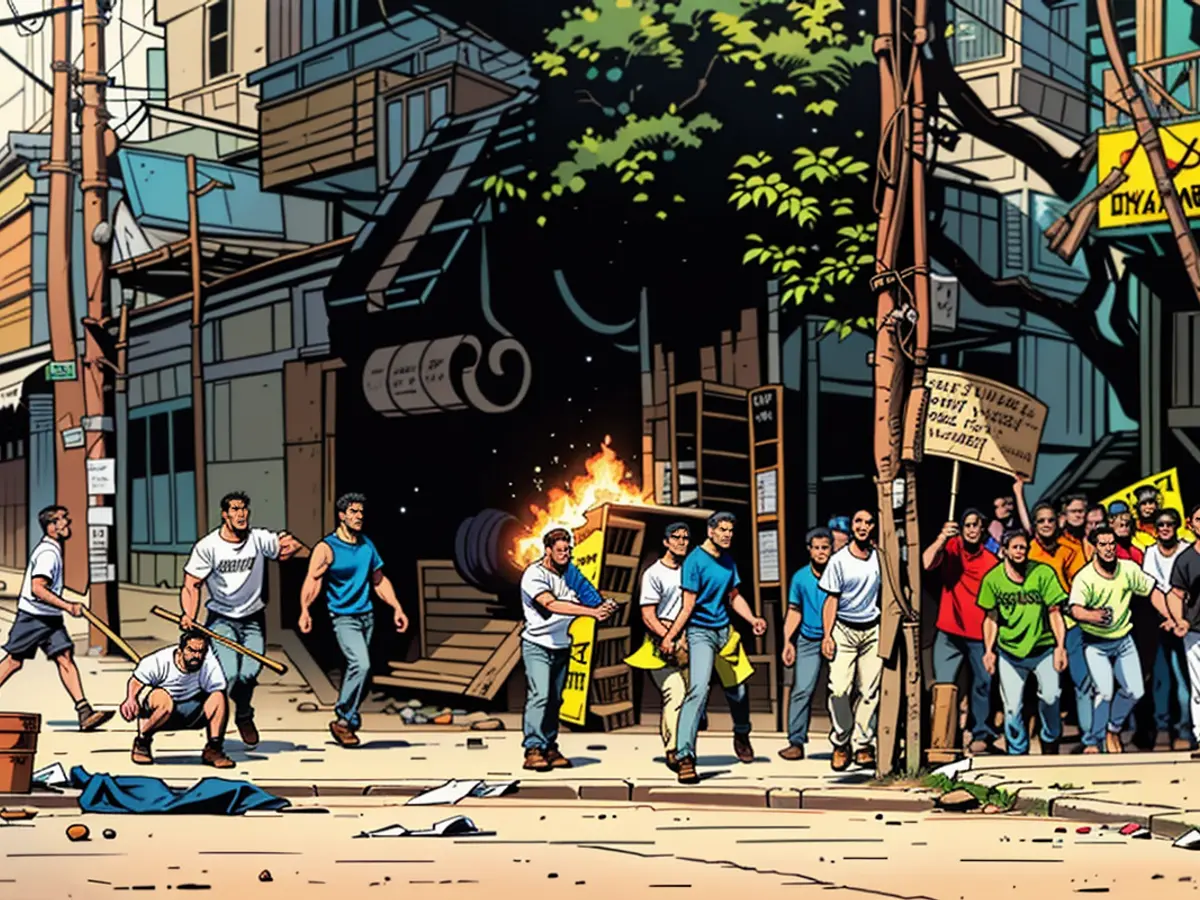Over a hundred deaths during student protests in Bangladesh
In Narsingdi, at the heart of the country, students stormed a prison, according to police reports, on a Friday and released the inmates. A police officer told AFP that "hundreds, possibly more, prisoners were freed." Afterward, the demonstrators set the prison on fire.
In the capital Dhaka, the police issued a city-wide ban on all political demonstrations on Friday to quell the unrest. "We have banned all demonstrations, marches, and public gatherings in Dhaka today," said Police Chief Habibur Rahman. This was necessary, he added, to ensure "public safety." The internet was also blocked.
Despite the ban, clashes between students and security forces continued in the city with around 20 million inhabitants. "Our protest will continue," said Sarwar Tushar, who was injured during the police's violent dispersal of a demonstration. "We demand the immediate resignation of Sheikh Hasina. The government is responsible for the murders," he declared, looking at the Minister-President, who has ruled the country autocratically for the past 15 years since her re-election in January in a virtually opposition-free poll.
UN Human Rights Commissioner Volker Turk condemned the violent suppression of protests as "shocking and unacceptable." "The attacks must be impartial, swift, and thorough investigations, and the perpetrators must be held accountable," Turk declared. The security forces were urged to ensure that all use of force was in accordance with international law.
Students in Bangladesh have been protesting for weeks almost daily against the government's quota system, which reserves more than half of the well-paid public sector jobs for specific population groups. According to critics, the quotas benefit the supporters of the 76-year-old Hasina, who was re-elected for a fourth term in January in an election with little opposition. The students demand a merit-based system instead of quotas for job allocation.
- The Student protests in Bangladesh have resulted in several victims of death, as reported by various news outlets, including AFP.
- In response to the ongoing Student protests in Dhaka, the military has been deployed to maintain law and order, according to local sources.
- Despite the military presence, the Student protests continue to escalate, with clashes between protesters and security forces occurring regularly.
- The students in Bangladesh have been protesting against the military-backed government, demanding an end to the brutal crackdown on protesters, as witnessed in various incidents.
- The international community, including UN Human Rights Commissioner Volker Turk, has condemned the excessive use of force by the Bangladesh police during the Student protests, calling for impartial investigations and accountability.
- As the counting of votes for the Student Union elections in Dhaka University ends, there are reports of irregularities and allegations of manipulation, which have further fueled the protests and distrust towards the government.







